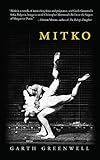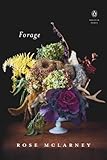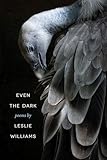Maybe this is the result of going on long runs in the woods, but I am pulled toward itinerant literature: the whisky priest moving across the Mexico countryside in The Power and the Glory, the Bundrens bungling their way across Mississippi in As I Lay Dying, Sethe moving from a past she can never leave behind in Beloved. I like books that move.
On the Road with Saint Augustine by James K.A. Smith moves (and moved me). Smith mines the fascinating life of Augustine, his writings, and how applicable his vision and experience are to our modern anxieties. Don’t miss the “Fathers” chapter, where Smith gets poetic and personal.



 Smith recently talked all things Augustine (and more) at Seattle’s Hugo House with Garth Greenwell, whose novella Mitko I’ve been returning to recently for a sense of moving—of syntax and sense, in his Augustinian moments and even the smaller touches (“After crossing a little wooden footbridge, at the middle of which I stopped for a moment, peering at the churning waters and feeling their vibration in the structure that held me above them, I found a small cafe nestled in a bend in the river, on a plot of land the waters had spared.”). How that sentence moves, the commas like gestures—handing one phrase over to another.
Smith recently talked all things Augustine (and more) at Seattle’s Hugo House with Garth Greenwell, whose novella Mitko I’ve been returning to recently for a sense of moving—of syntax and sense, in his Augustinian moments and even the smaller touches (“After crossing a little wooden footbridge, at the middle of which I stopped for a moment, peering at the churning waters and feeling their vibration in the structure that held me above them, I found a small cafe nestled in a bend in the river, on a plot of land the waters had spared.”). How that sentence moves, the commas like gestures—handing one phrase over to another.


 I’ve been moved often by the poetry of Rose McLarney (including her new book, Forage), so I was pleased to see her co-edit a book with Laura-Gray Street: A Literary Field Guide to Southern Appalachia. It is a treat to hold and a pleasure to look at: beautiful illustrations paired with place. There are poems here to the Single-Sorus Spleenwort and the Wine-Leaved Cinquefoil; to the Eastern Wood Rat and the Northern Long-Eared Bat; to the Black-Throated Blue Warbler, the Pileated Woodpecker, the Painted Turtle, the Mottled Sculpin, the Fat Pocketbook Mussel, and Thorell’s Lampshade Spider. There’s even a poem to the American Caesar’s Mushroom: “As the slender stem rises, red / And relentless as mountain sunrise, / As coal fires burning around us.”
I’ve been moved often by the poetry of Rose McLarney (including her new book, Forage), so I was pleased to see her co-edit a book with Laura-Gray Street: A Literary Field Guide to Southern Appalachia. It is a treat to hold and a pleasure to look at: beautiful illustrations paired with place. There are poems here to the Single-Sorus Spleenwort and the Wine-Leaved Cinquefoil; to the Eastern Wood Rat and the Northern Long-Eared Bat; to the Black-Throated Blue Warbler, the Pileated Woodpecker, the Painted Turtle, the Mottled Sculpin, the Fat Pocketbook Mussel, and Thorell’s Lampshade Spider. There’s even a poem to the American Caesar’s Mushroom: “As the slender stem rises, red / And relentless as mountain sunrise, / As coal fires burning around us.”
Even the Dark by Leslie Williams moves in its own way, from pauses to prayers (one of the latter starts in the eye of a bird: “It sees magnetic fields and ultraviolet light. As it flies, horizons stay precise.”). Her book is a great one to end the year on, or perhaps to start the new year with: “You could pine / for solitude and then complain of loneliness.” I like how her poems pull me here and there, and leave me elsewhere. “What’s a life for?” she asks, mid-poem. Let’s read and figure it out. Or just wander.
More from A Year in Reading 2019
Don’t miss: A Year in Reading 2018, 2017, 2016, 2015, 2014, 2013, 2012, 2011, 2010, 2009, 2008, 2007, 2006, 2005









